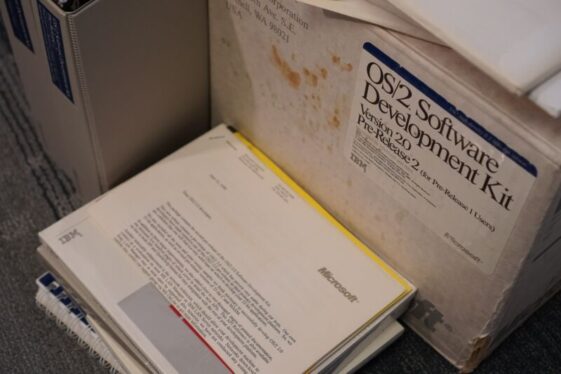
Enlarge / This big, weathered box contains an oddball piece of PC history: one of the last builds of IBM’s OS/2 that Microsoft worked on before pivoting all of its attention to Windows. (credit: Neozeed)
In the annals of PC history, IBM’s OS/2 represents a road not taken. Developed in the waning days of IBM’s partnership with Microsoft—the same partnership that had given us a decade or so of MS-DOS and PC-DOS—OS/2 was meant to improve on areas where DOS was falling short on modern systems. Better memory management, multitasking capabilities, and a usable GUI were all among the features introduced in version 1.x.
But Microsoft was frustrated with some of IBM’s goals and demands, and the company continued to develop an operating system called Windows on its own. Where IBM wanted OS/2 to be used mainly to boost IBM-made PCs and designed it around the limitations of Intel’s 80286 CPU, Windows was being created with the booming market for PC-compatible clones in mind. Windows 1.x and 2.x failed to make much of a dent, but 1990’s Windows 3.0 was a hit, and it came preinstalled on many consumer PCs; Microsoft and IBM broke off their partnership shortly afterward, making OS/2 version 1.2 the last one publicly released and sold with Microsoft’s involvement.
But Microsoft had done a lot of work on version 2.0 of OS/2 at the same time as it was developing Windows. It was far enough along that preview screenshots appeared in PC Magazine, and early builds were shipped to developers who could pay for them, but it was never formally released to the public.
Read 5 remaining paragraphs | Comments




